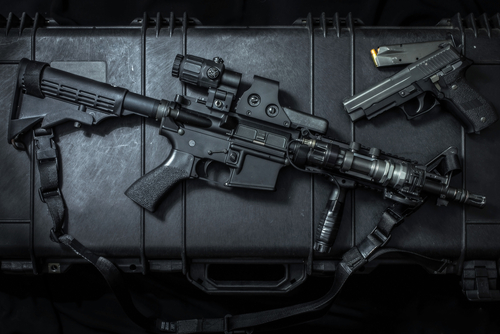Law designed to prevent domestic abusers from buying guns, but national database not always updated

Puttawat Santiyothin/Shutterstock.com.
Many mass shooters and other violent criminals have had little problem buying guns despite past legal run-ins for domestic abuse.
A federal law known as the Lautenberg Amendment, passed in 1996, generally bars gun purchases by people convicted of domestic abuse. Yet the law has not worked, partly because conviction information is not being entered into the National Criminal Information Center database, the New York Times reports.
That occurred in the case of Texas church shooter Devin Kelley. The Air Force revealed Monday that it did not enter Kelley’s 2012 conviction in a court-martial for beating his wife and breaking his stepson’s skull.
Kelley killed 26 people on Sunday at a Baptist church about 45 miles east of San Antonio. He was found dead in his vehicle.
The national database has just one reported case of domestic violence from the Department of Defense through the end of 2016, according to the Times. All but a few of the 11,000 cases reported by the military listed the category as “dishonorable discharge.”
Billy Rosen, the deputy legal director for the New York-based nonprofit Everytown for Gun Safety, tells the Times that a history of domestic violence is often a pattern among mass shooters.
“A history of this particular kind of conduct may really demonstrate that someone has dangerous propensities and should not be allowed to have guns,” he told the Times.
Even when the Lautenberg Amendment is followed, there are some loopholes. The law defines a “domestic abuser” as someone who is married to or has lived with the victim, or is the parent of the victim’s child. The result is a “boyfriend loophole.”
Sen. Amy Klobuchar, D-Minn., has introduced a bill that would close the boyfriend loophole and that would prevent stalkers from owning guns.



